The human body needs carbohydrates, fats, proteins, vitamins, and minerals, all of which can be obtained from food. These substances are known as components of food, or more commonly, as nutrients. Nutrients are essential for the proper functioning of our body. Humans cannot survive without these components, and different foods contain various nutrients.
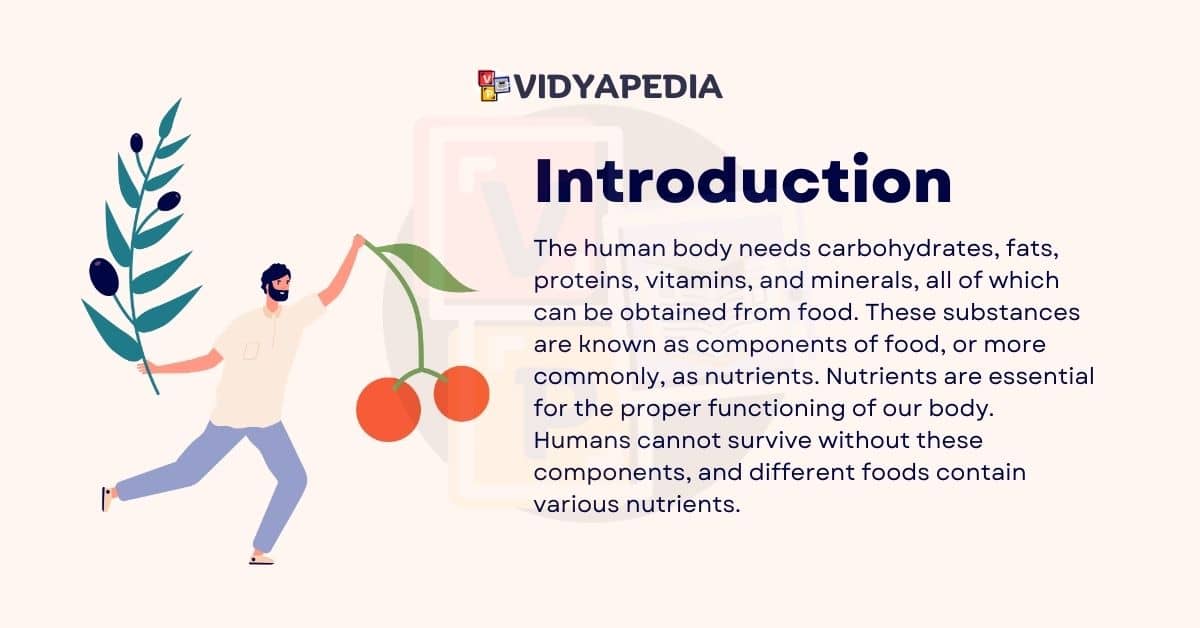
Foods come from different sources, including plants, fungi, and animals. Humans cannot produce their own food and must obtain it either directly from plants or indirectly by consuming animals in the form of flesh, meat, and other things. Thus, humans are dependent on plants for their nutritional needs.
Food is composed of various nutrients that are essential for our body’s growth, maintenance, and overall health.
Sure! Here’s a more readable, user-friendly version tailored for Indian users, with added explanations and sources:
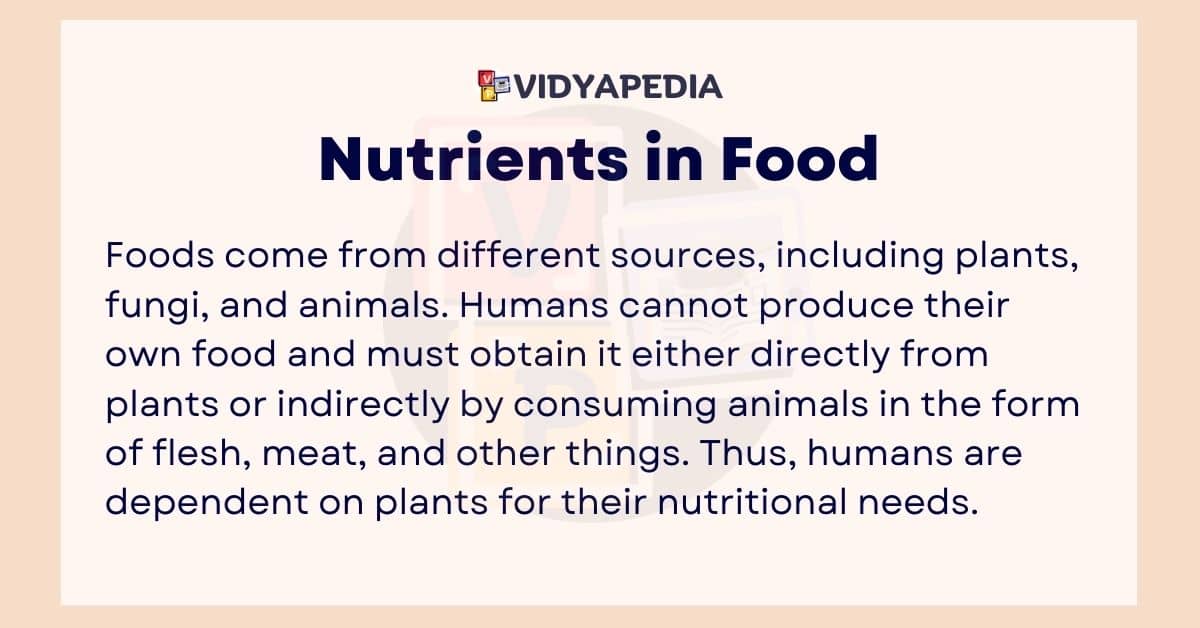
Food is made up of various nutrients that are essential for our body’s growth, maintenance, and overall health. Let’s break down the primary components of food: carbohydrates, proteins, fats, vitamins, and minerals.
Carbohydrates
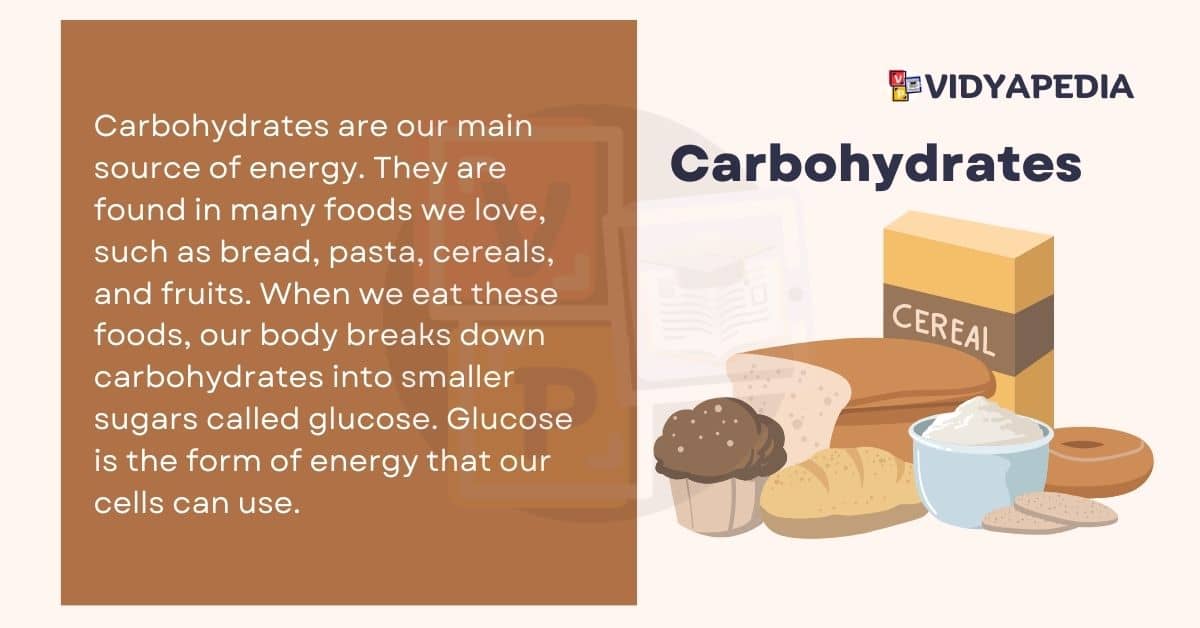
Carbohydrates are essential sources of energy that fuel our bodies for day-to-day activities, keeping us energetic and capable of completing tasks. They come in two forms:
- Simple Carbohydrates: These provide quick energy and are found in fruits, vegetables, and dairy products like milk and yogurt. Examples include glucose, fructose, and sucrose.
- Complex Carbohydrates: These provide sustained energy and are found in foods like rice, wheat, lentils, beans, potatoes, and spinach. They contain starches and fibres that aid in digestion and provide long-lasting energy.
Sources: Fruits, vegetables, dairy products, whole grains, legumes.
Proteins
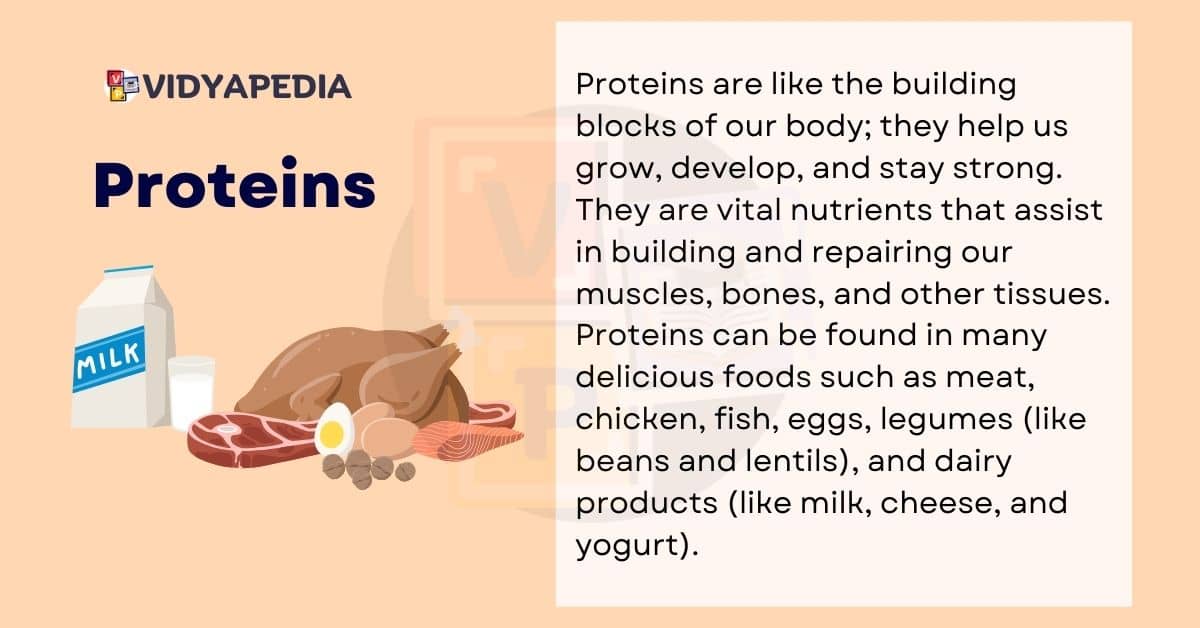
Proteins are important nutrients that work as the building blocks of life. They play important roles in our bodies by helping with their growth, repairing tissues, and maintaining overall health. Proteins are made up of smaller units called amino acids, which are necessary for forming muscles, organs, and bones. They act as enzymes and hormones that assist in digestion and support various metabolic processes.
They can be obtained from both animal and plant sources. Animal-based proteins include eggs, dairy products like milk and paneer, as well as meat and fish. Plant-based sources of protein include beans, lentils, nuts, seeds, and soy products such as tofu.
Fats

Fats provide a concentrated source of energy and help absorb certain vitamins. There are several types of fats:
- Saturated Fats: Found in ghee, butter, coconut oil, and animal fats. These should be consumed in moderation.
- Unsaturated fats are found in olive oil, mustard oil, avocados, nuts, and seeds. These are healthier fats that can help reduce the risk of heart disease.
- Trans fats are found in some processed foods like cookies, pastries, and fried snacks. These should be avoided, as they increase the risk of heart disease.
Sources: Ghee, butter, oils (olive, mustard), avocados, nuts, seeds, processed foods.
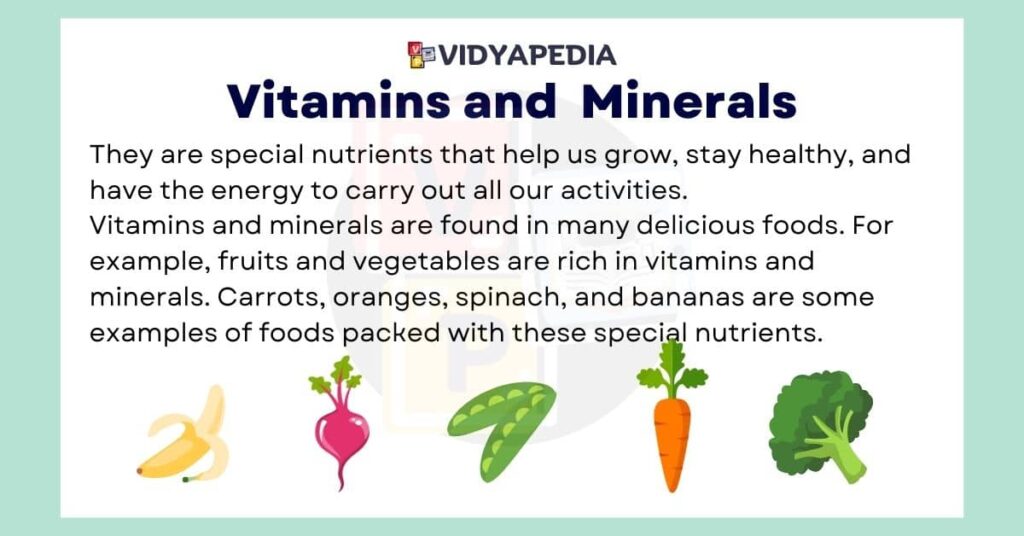
Vitamins
Vitamins are vital for various bodily functions, like vision, skin health, and immune function. They are divided into two categories:
- Water-soluble vitamins: These include vitamin C and B vitamins (like B6, B12, niacin, and riboflavin). Since they are not stored in the body, they need to be consumed regularly through fruits, vegetables, and grains.
- Fat-Soluble Vitamins: These include vitamins A, D, E, and K. They are stored in the body’s fatty tissues and liver and can be found in dairy products, fish, and green leafy vegetables.
Sources: Fruits, vegetables, dairy products, grains, fish, green leafy vegetables.
Minerals
Minerals are needed for building strong bones, making hormones, and maintaining a healthy heartbeat. Important minerals include:
- Macro Minerals: Needed in larger amounts. Examples include calcium (for bones), potassium (for muscles), sodium (for fluid balance), and magnesium (for nerves).
- Trace Minerals: Needed in smaller amounts. Examples include iron (for blood), zinc (for immunity), copper (for iron metabolism), and selenium (for antioxidant protection).
Sources: dairy products, green leafy vegetables, nuts, seeds, meat, fish, and grains.
Read Science
Why These Nutrients Are Important
Each of these nutrients plays a crucial role in keeping us healthy. A balanced diet that includes a variety of foods ensures we get the right mix of these nutrients. Here’s why they matter:
- Energy and Strength: Carbohydrates and fats provide the energy to perform daily activities, while proteins build and repair our bodies.
- Healthy Body Functions: Vitamins and minerals support everything from vision and bone health to immune function and fluid balance.

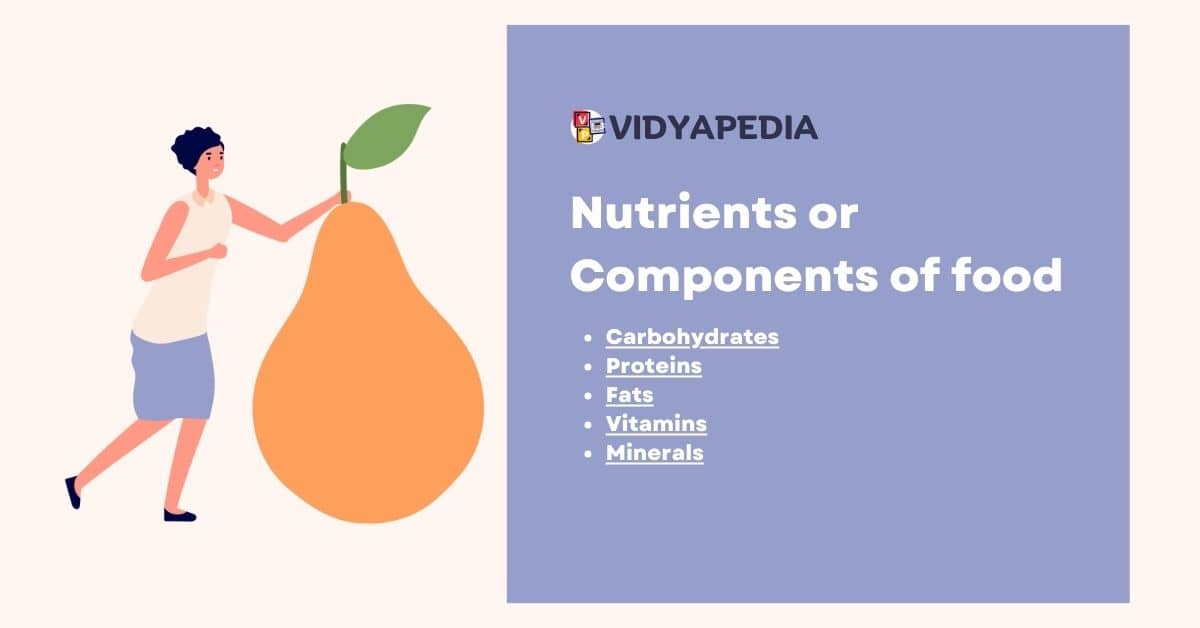

Very useful